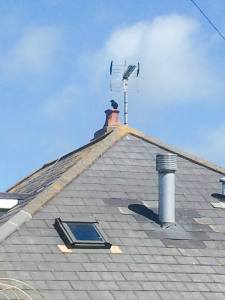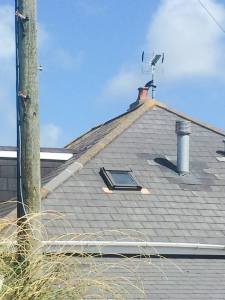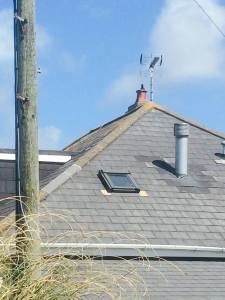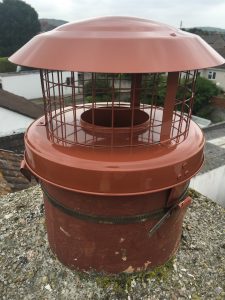As well as regular servicing and sweeps, we also provide other services to ensure that your stove and flue system are safe and efficient;
Bird nest removal
Most birds tend to build nests in April and will stay there for about 3-4 months, laying their eggs, and rearing their fledglings, until they are ready to leave the nest.
Specific to chimneys, jackdaws are our biggest concern as they like to nest within a warm, dry flue, which is typically about 3 metres down from the pot. You would know that they are starting to nest as you would notice twigs coming down the flue and you would be able to hear them chatting away. You would also be able to see their busy activity if you were to look outside as these master builders enter and exit your flue!
If you haven’t taken measures to fit a bird guard to your flue before them nesting, you would have to wait until the fledglings have left the nest in July before being able to do anything about it (as per The Wildlife and Countryside Act – 1981).
Only once the nest has been vacated are we then permitted to remove them.
As jackdaws are creatures of habit, they’ll return every year until you do something about it. If a jackdaw has been allowed to nest for consecutive years, the nest can be substantial and require some time to remove. Therefore, following an initial call out or sweeping fee, removing bird nests is charged on an hourly rate. Our rotary power sweeping kit allows us to remove nests rapidly and effectively.
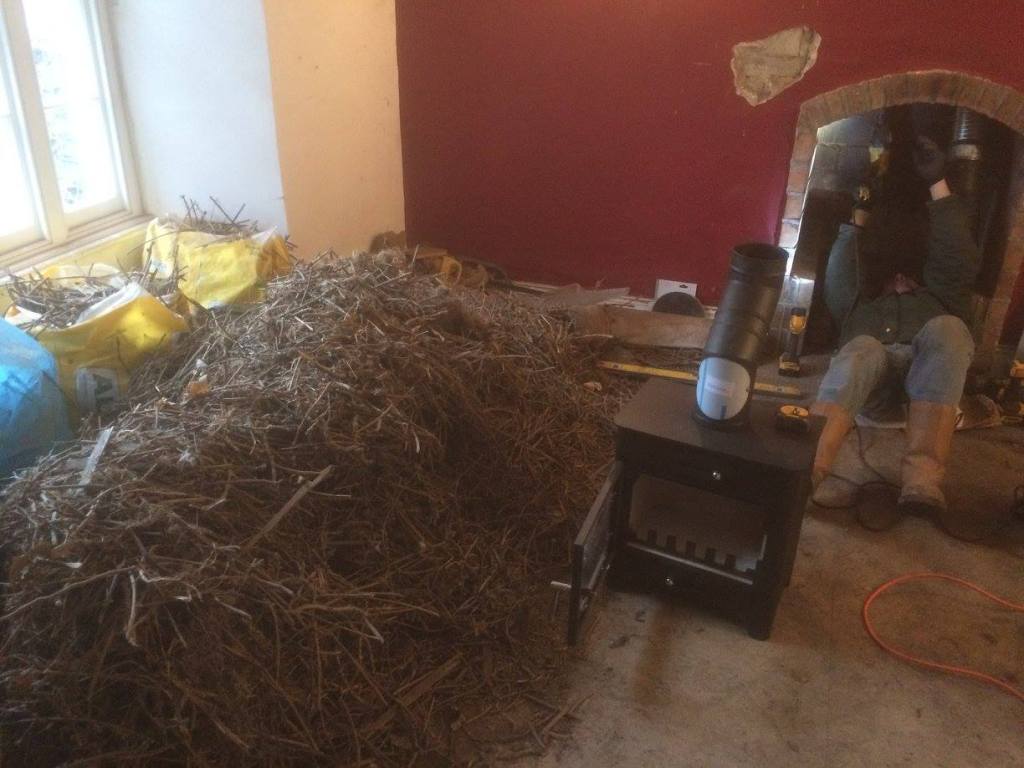
Consumable part replacement: Firebricks, fire-rope, stove glass, baffles
The price for each component varies for each stove. Delivery will often need to be accounted for. In some cases, and for the European stoves, an import tax will also apply. Sometimes we waive fitting fees if we can replace the parts at the same time of the service; firebrick and baffle replacement is a good example. Fitting new fire-rope or glass can take time especially if excessive cleaning is required or if the securing tabs for the glass are damaged.
If we need to return to fit anything, then a fee will apply to cover the call out and fitting.
CO (Carbon Monoxide) alarms
Carbon monoxide (CO) is known as a silent killer. It is an odourless, invisible, and deadly gas.
CO can be released when burning fuel. If you have an open fire or a stove, you should have a CO alarm fitted. The placement of the alarm is precise.
We can supply and properly fit CO alarms for £45.00 + VAT. It might well be the best money you’ll ever spend! Our CO alarms conform to building regulations (ADJ 2010).
Click here for more information on Carbon Monoxide provided by HETAS.
Cowl fitting
A cowl is used to terminate a flue. It is a significant part of a chimney system, and every flue should have a cowl fitted. Your flue system and any issues you may have with it will help determine what type of cowl you should have installed.
The simplest cowls will close off a redundant flue. For example, if you have a disused chimney and it is not capped correctly, it will be allowing rain or wildlife to enter. In this instance, we can supply and fit a cowl that will blank off the unused flue yet allow a small amount of air to circulate within your chimney thus preventing condensation and damp issues. We charge £80.00 + VAT for this service, providing we can access your pot from ladders.
If you have a “live” flue, there are many types of cowls available. If you have issues with birds nesting, a bird guard cowl can be fitted. If there is too much draw from your flue and you can’t control your fire, meaning that you are burning too much fuel, an anti-downdraught cowl can be fitted.
In some cases, you might not even have a chimney pot.
Whatever the problem, we can provide affordable solutions to resolve these issues. The price will be dependent on what you require. We strongly suggest and advise you choose a cowl that is made from quality stainless steel and not the cheaper galvanised steel. We live by the sea and are subject to corrosion more so than inland areas.
If your flue does not have a bird guard on the terminal, your flue could get blocked if birds choose to nest within your flue.
Get in touch
Please contact us here for more information on any of the above services, or complete the form below;

